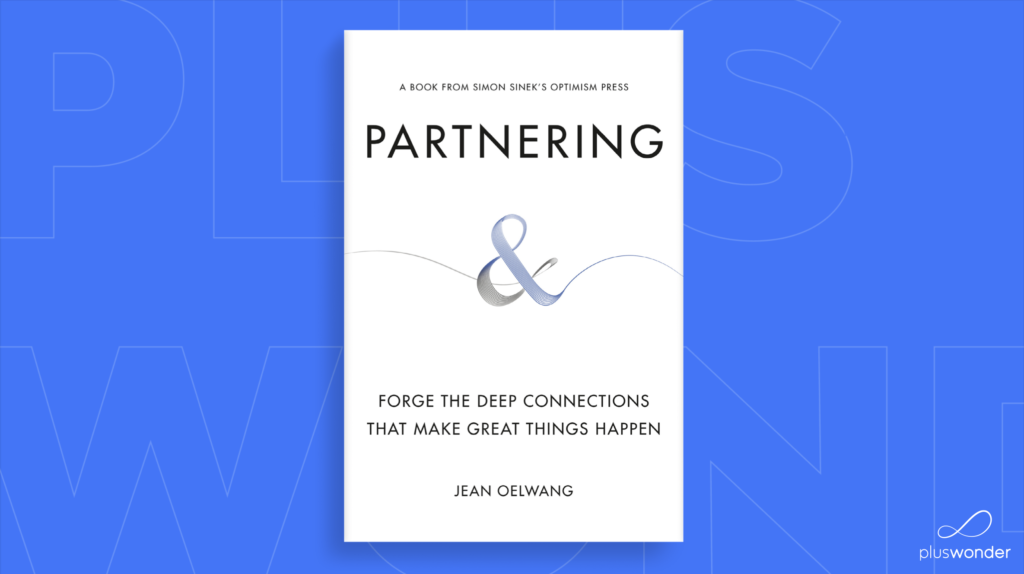
An intoxicating ‘Something Bigger’

Mostafa, Stephen, Sherry, and Mario—part of a global community of friends responsible for ending the use of CFCs that were destroying the ozone layer—all had something in common that lifted them from a singular, personal purpose to a collective, world-changing purpose: a sincere belief in saving humanity by closing the ozone hole, and the humility to know that they could not go it alone. They needed thousands of people who were also “hypnotized” by this critical mission.
They did not just talk about their mission and write long reports, they dedicated their lives to action, building one of the most successful global partnerships in the history of humanity. To this day, people still call Stephen “the ozone guy,” reflecting the centrality of this work in his life. This sincere, clear commitment to something bigger gave the partners authentic trust and respect that rippled out to create the wider movement. Their belief and persistence were intoxicating. People wanted to be part of it. They wanted to be on the right side of history to make a difference for generations to come.
As you expand your Deep Connections and start to create much larger collectives of connections, it is even more important to have a clear purpose to serve as inspiration and as a compass as the group grows ever more diverse. Without the first degree, a compelling something bigger, it is impossible to achieve liftoff.
The something bigger does not have to be perfectly articulated from day one; in fact, co-creation bonds the collective. Where The Elders are concerned, it took several years, many workshops, and a moving speech from Nelson Mandela to arrive at the moral compass for the collective of twelve Elders. That speech (shared in part in chapter four) still stands today, some fifteen years later, as a North Star for The Elders and their ever-widening circle of partners.
Even with clear North Stars, such as the imperatives to protect the ozone layer and to end apartheid, there needs to be flexibility for them to evolve as the science advances, policies are tested, and approaches are fine-tuned. They also need to be inspiring enough to hold people’s attention. For the ozone community, this was the chance to change history for the better, as shared by Richard Benedick, chief US negotiator: “The ‘spirit of the protocol,’ often invoked by participants in this process, reflected genuine feelings of solidarity and partnership to protect the ozone layer, in what was regarded as a noble and historic global movement.” It also helped tremendously that the science was respected, the term the “ozone hole” was simple to grasp, and there was an immediate threat to human health.
Within that framework, people’s individual purposes were lifted to ensure they had fulfilling experiences. “Inspiring a shared vision does not mean that others must share the exact purpose of the leader,” Stephen told me. “A leader honors others’ goals and dreams and enables them to see that there can be a mutually rewarding outcome.”
I’m convinced that the only way we are ever going to tackle the complexities of our shared challenges is by collaborating on a global scale, as we saw in the previous chapter. And the only way to do that is to build the Deep Connections that allow us to move forward together without becoming overwhelmed by fear.
This movement toward cooperation will demand a revolution of social virtues.
As I’m writing this book, the world is more divided than ever before, stoked by a culture of fear and self-interest. We’ve ripped apart much of the cultural fabric that was keeping humanity connected, and we’ve lost touch with the natural world. In the 2017 Edelman Trust Barometer, 53 percent of respondents felt that government, business, and media systems were failing them, and out of that group, 83 percent feared the erosion of social values.
In 2020, COVID-19 ignored our man-made borders, took advantage of our selfish individualism, and showed the world just how interconnected we all are. It also shone a spotlight on how unprepared humanity is to collectively respond to crises that scoff at national and global borders. As the virus ripped through the world, I was reminded of a plea from a young Egyptian man who courageously stood up in an intergenerational leader meeting we were hosting in Cairo in 2012: “When will politicians around the world realize that the only borders left are on old maps?”
Hopefully soon.
This global pandemic brought out the worst and best in humanity. People, companies, and nations hoarded and profiteered from lifesaving medical supplies, fights broke out over frozen food, and people put others’ lives at risk through their self-centered actions. Health workers sacrificed themselves for their communities, competitors collaborated on vaccines, and citizens came together to support the most vulnerable in their communities. I watched in awe as a group of African leaders, led by President Cyril Ramaphosa and including others such as Strive Masiyiwa, Dr. John Nkengasong, Donald Kaberuka, Trevor Manuel, and Ngozi Okonjo-Iweala, mobilized financing for Africa, secured vaccines, and built a medical supplies platform to fight the pandemic. A wise continent-wide response to ensure no country and no individual was left behind. Their focus on collective interest put many other global leaders to shame.
Even when everyone seemed to realize that the one thing they missed was human connection, many leaders around the world used the pandemic as a moment to promote divided national and personal agendas.
Part of the issue is that technology is often separating rather than connecting us. An NBC News poll in May 2021 showed that nearly two-thirds of Americans feel that social media platforms are tearing us apart rather than uniting us. I was reminded of this one early morning in New York City when I passed a schoolyard. My heart filled with memories: wild play, a buzzing hive of friends, a sea of gangly legs and arms all trying to kick the same ball amid an ever-increasing chorus of joyous shrieks. Yet the reality in front of me was very different. Uni-formed children were sitting all by themselves, backs hunched, huddled over their phones. The stillness stopped me cold. No joyous shrieks, no running, no laughter, no play, no connection with each other. I know this was just one moment in one schoolyard. Nevertheless, this scene struck me as the norm we might be headed toward, the new world order that has grown around us.
As we’ve seen from the partnership stories in this book, we can choose a future in which we rise above an obsession with individual gain, away from domination and toward a partnership mentality, where technology could become a tool to aid meaningful connection and to create solutions at scale. We could incentivize people and organizations to collaborate for the benefit of humanity and the planet. Or we could take the other path and fall back into our warped measures of success linked to profit, power, meaningless online “friends,” and individual achievement.
To choose the right path, we need to be vigilant in shifting society’s measure of success from fame and money to the meaningful relationships we’ve nurtured and how we can use our time wisely to make other people’s lives better. Richard Reed, co-founder of Innocent Drinks, explained his measure of a life well-lived: “Happiness and success are about collaboration, your relationships, how much you invest in them, how much time you spend with those people that nourish you the most, and how much you help those people.”
As we create new measures of success, we must start by constantly asking, “Who is missing from the conversation?” The growing gap in equality and the divides perpetuated by technology’s ability to silo information distribution have separated us from the Deep Connections that could help us change the world. Before I conducted some of the interviews in this book, I was hesitant, thinking that my views might be so different that I would never be able to enjoy the discussion and learn something new. How wrong I was. It made me realize how siloed I was in my thinking and how important it is to find Deep Connections that are radically different and that will unsettle me.
We can shift the world from a frame of competition to one of cooperation. When people don’t have to be perfect, the door is opened to complementary partnering. “We waste so many cycles on being competitive versus collaborative as human beings,” shared Keith Yamashita. “Who’s better, who’s right, who gets to call the shot, who’s in power — if we could just take all of that wasted energy and apply it to what could I bring, what could you bring, then together we could do something extraordinary.”
Reimagining the world can begin with nurturing Deep Connections of meaning and love in our lives, and using them as epicenters for collaborations at a scale we cannot yet comprehend. We can leave behind the baggage we’ve accumulated through self-interested individualism — material things, misguided notions of fame, and the absence of justice in our communities. We can build strong ecosystems of trust, respect, and belief in each other that serve as beacons for a positive revolution of love.
This article was originally published on Medium.

